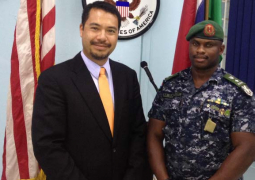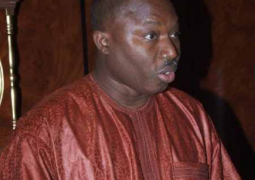Human rights activists and defenders have decried the “deteriorating” human rights situation and humanitarian crisis rocking Somalia, and raised the alarm for the international community to step in to help a country that has lost the blessing of an effective government for 20 years.
The pronouncement was made by human rights activists working in Somalia at a side event on the human rights situation in Somalia organised and hosted by Amnesty International, the Strategic Initiative for Women in the Horn of Africa (SIHA) and East and Horn of African Human Rights Defenders Project (EHAHRDP).
According to the activists, Somali women (who are part of most of the internally displaced persons) face daily rape at the hands of both transitional government forces and local militia.
They said despite a massive humanitarian response, the situation has not fully abated, adding that millions of people still face dire circumstances with food insecurity, water, sanitation, and health needs all in need of full attention.
But they also said the drought and escalation of conflict has furthermore created a precious security environment, with an absence of functioning accountability structures within which human rights abuses and sexual violence have been able to flourish.
The special session, chaired Hassan Shire Sheikh, renowned human rights activist and the executive director of EHAHRDP, brought together four key panelists who discussed the human rights situation in Somalia.
Human rights activist Shire, in his brief remarks, said the human rights situation is deteriorating on a daily basis, and that Africans have to join forces to bring a smile to the faces of millions of displaced Somalis.
He urged the African Commission to act with urgency as the situation on the ground is unbearable for living in Somalia, especially those living in Mogadishu.
Speaking on the general situation and the situation of children in Somalia, Kathryn Achilles of Amnesty International said the human rights situations in Somalia was neglected for many years, adding that children and women are most vulnerable in conflict.
She said the indiscriminate shelling of civilians by the Al-Shabab militants and government forces is causing havoc to the civilian population, which has been denied basic human rights for a long time.
The human rights activists said there are no available data or figure on the number of people killed during the conflict, as movement during the war is restricted, especially to human rights defenders and journalists.
The humanitarian crisis, coupled with mass violation of human rights, is continuing, she said, adding that political killing, repression and attacks on civilians are worrying.
She believes that the situation was made worse by the famine, drought and war in the Horn of Africa, and went on to accuse both the government forces and local militia for committing crimes against civilians, including killings and rape.
They used systematic killing of women and children, and nothing is being done about that, she said, adding that women and girls are forced to marry, and the right to education is being denied due to the conflict.
“The situation in Somalia poses a serious challenge to the international community. Impunity for 20 years is enough,” she declared.
Zahra Mohamed Ahmad, legal adviser of the Mogadishu-based Somali Women Development Centre, who spoke on the situation of women in Somalia, said women’s situation in Somalia leaves much to be desired, adding that women in Somalia are suffering for years without help.
Zahra, who lives in Mogadishu, said the women who live in internally displaced persons’ camps face rape and sexual assault, adding that they lack shelter, clean drinking water and security.
She said there is no education for children and women because the schools and institutions were all destroyed by the war, and that women have no voice since the government is weak.
She also called for help from the international community to address the crises in Somalia, adding that her country has long called for help.
Asmhan Abdelsalam Hassan, executive director of the Somaliland-based Forum for Peace and Governance, also cried out about the human rights situation in Somaliland, a self-proclaimed independent state in Somali, saying that women there are sexually abused and raped.
She said there are reported cases of violation of women’s and girls’ rights, adding that people with disabilities are vulnerable and mostly discriminated against.
The women’s rights activists said traditional and cultural practices have also undermined women’s participation in politics in Somaliland, because women are discriminated from taking part in decision-making.
Racheal Nicholson, human rights officer responsible for advocacy at the Kampala-based East and Horn of African Human Rights Defenders Project, and Omar Faruk Osman, the secretary general of National Union of Somali Journalists all spoke at the special session.
“Somalia is the worse place for journalists to live in,” Osman said, adding that in five months five journalists were killed, and that there is systematic killing of journalists by Somali government forces and local militias.
He cited the recent killing of a Somali journalist, which was believed to be systematically and politically motivated.
He added that the journalist was killed by a man in government soldier’s uniform.
“To kill journalist in Somalia is the cheapest thing; people are paid to kill journalists, and the killing is also institutionalised.” Osman said.



